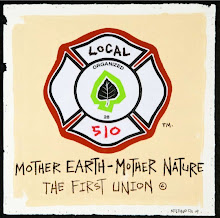
This is an excerpt from Mary Catherine Bateson's book; "Composing A Life." As it was coined at that time (of publication in 1989): this is a radical rethinking of the concept of achievement." The value here is that consideration of achievement is really focused for women.
I have taken this excerpt from Chapter 6, page 114, starting with the first paragraph to the end of this chapter. Only minor changes, such as the order of 'women and men' will be changed for obvious reasons, not rooted in anything than change; women as verbs: in action in their own lives. Read on:
'I participated in a consciousness-raising group for about a year during the seventies. Although I learned a great deal, it was an uncomfortable experience because, as the oldest member of the group. I had coped too well for too many years with the multiple demands of my different roles not to be suspected of being that unpopular creature, the "superwoman," who makes life difficult for other women by bearing burdens that no one should be asked to bear. And I was insufficiently angry. It was not until I had been an object of discrimination myself and been frustrated in my efforts as dean to chieve fairness for the sake of others that I became angry. Working on this project has been a form of consciousness raising for me, carrying me beyond the discovery of anger; the interwoven stories of these different women may provide something of the same experience for others.
Today, I believe that we will not learn how to live responsibly on this planet without
basic changes in the ways we organize human relationships, particularly inside the family, for family life provides the metaphors with which we think about broader ethical relations. We need to sustain creativity with a new richer sense of complementarity and interdependence, and we need to draw on images of collaborative caring by both women and men as a model of responsibility. We must free these images from the connotations of servitude by making and keeping them truly elective.
Increasing numbers of women work now within the symmetrical model, because the asymmetries of gender relationships have been so profoundly exploitative and the discovery of comradeship so rewarding. But symmetrical models promote competition and conflict; as the Bible shows, brothers are not always friends. These models also involve pressing participants toward similarity, teaching them to play by the same rules and to abandon their different styles and different contributions. The loss is serious. Furthermore, symmetrical models work badly across cultures, when differences are real and profound. They are almost useless as a basis for forming ethical relationships outside the human species; they don't help us deal responsibly with the rain forests or the oceans.
The sermon by the Tibetan monk evokes compassion with a double twist: On the other hand, it invites acknowledgment of similarity, reminding the listener that all sentient beings are caught in the cycle of incarnations hand have passed through the same forms. We are all alike. On the other hand, it evokes the asymmetry of the mother-infant relationship, of love and mutual need based on difference. We need the rain forests and the living oceans to sustain our lives. Compassion is a more complex idea than equality, but the very word is distorted in the Western usage into something like the faintly scornful pity felt by the strong for the weak. "Interdependence" is the increasingly used for relationships of interlocking needs that contain elements of difference and elements of commonality. We speak of interdependence between species, between nations, between north and south, between different bioregions. Oddly, as procreation becomes less central, we are ourselves in need of new ways to express the interdependence of females and males as partners (or) and as friends.
When you hear someone describing their day-to-day interactions, you can sort out the underlying metaphors, listening for the formal similarities between different forms of caring, or rivalry, or exploitation. you find teachers who are aware of learning from their students and teachers who are not; employers for whom workers are interchangeable and others who recognize that spontaneity and freedom produce higher productivity than adversarial negotiations about standardized tasks. Even in working with computers, there is a variation between those who use an imagery of collaboration and those who think in terms of a master-slave relationship. "I always like the aspect where there is close human interface," Alice commented, "those things a machine can do better because a human being and a machine work together."
The difference between women and men are our most important resource in learning new ways of thinking about difference. We cannot change the disparity between infant and adult, though we can surely learn to understand and respect children more. But we can work toward households and schools in which the differences between women and men are visibly a mutual source of strength rather than dominance. A home is one model of the kind of complex whole two people- or more- can work together to create. This dimension of home making is also applicable too building of laboratories and the staffing of offices, to making places where adults as well as children can grow, where strengths are fostered and possibilities are increased.
Women have a great deal to offer to this process today, but not because they necessarily bring the resources of nurturance and tolerance than create reform. Rather, having grown up expecting to be homemakers and caretakers, they still retain an understanding of interdependence. If they continue looking for complimentary relationships, relationships of mutual give and take, when we have rejected inferior status, we can help to make these relationships more widely available. And when women augue against various forms taken by the exploitation of women, against the premises on which traditional gender relationships and visions of the life cycle have been built, they are also arguing against the arrogant dominance and casual exploitation of the planet on which we live.
If the difference between female and male can be affirmed without connotations of inferiority and superiority, we may change the exploitive elements in other relationships across difference like race and class and, more profoundly, between the human species and the rest of the biosphere.'
Sunday, July 20, 2008
GIVE AND TAKE
Posted by
la fin du siècle
at
1:59 PM
![]()
Labels: give and take, interdependence, mary catherine bateson, relationship, vermeer, woman holding a balance
Subscribe to:
Post Comments (Atom)





























No comments:
Post a Comment